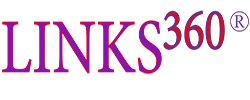What is Intelligent Leadership?
The notion of intelligent leadership is less to do with personal or emotional intelligence but is more to do with collective intelligence in applying knowledge and understanding to the practice of leading.
Intelligent Leadership
It is a form of public leadership; a collective leadership style (Brookes and Grint, 2010). In the public sector, collective leadership is considered to be an essential way of dealing with the complexity of public service delivery particularly in an age of austerity. Intelligent leadership holds promise as a mechanism to bridge the gap between vision and implementation and known and unknowns based upon the best available evidence. This would apply whether the aim is to improve the education of our future generations, the safety of our society or, at a more specific level, the experience of individual members of the public, whether this is as a victim of crime or a patient.
Intelligent leadership has also been viewed as a means of dealing with what is described as a leadership deficit (Sydänmaanlakka, 2008) through a combination of four kinds of intelligence:
Intelligence of the hand (the skill to do things), intelligence of the head (the ability to reason things out), intelligence of the heart (awareness of one’s own feelings) and intelligence of the soul (clarity over the values guiding all action).”(2008:4)
The author describes the latter as the most important. This could be viewed somewhat paradoxically as “real intelligence lies at the level of being” (ibid, 2008:4).
Intelligent leadership represents a shared and collaborative mechanism of leadership and yet is this compatible with its notion as real intelligence at the level of being? The answer must, of course, be yes, as behind every network and forming part of every relationship, are individuals.
This is why leadership both begins and ends with people.
If intelligent leadership is viewed more as a mechanism of leadership rather than a style (or context), then it necessarily follows that the main outcome of the effective practice of intelligent leadership is a new way of doing things and can be considered as a means of drawing all elements of the practice of leadership together. It comprises both problem solving and decision-making processes.
Intelligent leadership has an impact on the way in which work is undertaken. There are four main ways in which effective intelligent leadership can be evidenced:
- Ensuring that decisions are based on the widest possible range of viewpoints;
- Creating ways to share and communicate effective innovation;
- Balancing information of ‘the heart’ and that of the ‘head’ in guiding decisions; and
- Keeping up to date with current thinking and best practice to ensure that leadership impacts on the key purpose of the organisation.
Problem solving features strongly within the concept of intelligent leadership. The development and use of knowledge and skills is equally important. This will benefit from problem solving approaches. Knowledge, intelligently analysed, shared and used can be valuable tipping points in successful leadership. One commonly distinguishing factor between knowledge and skill is that knowledge is what is contained in the head and skill is that which is done by the hand. It is more complex than this, but it works well as an early distinction. It can be argued that it distinguishes between leadership (knowledge and wisdom) and management (skills and experience).
Einstein once argued:
Science can only be created by those who are thoroughly imbued with the aspiration toward truth and understanding.”
(Einstein, 1954: 43)
Aristotle, arguably one of the most eminent of Greek philosophers, distinguished the word phronesis from other forms of wisdom (such as episteme and techne) relating it more to practical wisdom rather than simply intellectual wisdom but within the context of ethics. Although the term phronesis encompasses intellectual wisdom, it also highlights the importance of linking theory to practice. It can thus be equated with practical wisdom. In today’s world, we can view this as that of intelligent leadership; not only acquiring relevant knowledge (episteme or epistemology), reasoning (nous) but also applying this knowledge in practice (phronesis). It is about practical judgment shown by good leaders.1
This is summed up well:
Practical wisdom (phronesis) is the intellectual virtue concerned with doing.”
(Aristotle et al., 2009:xvi)
From Brookes’ research the following key findings emerged in support of the notion of intelligent leadership:
-
- The need for a greater level of openness and transparency is critical to the practice of intelligent leadership in the encouragement and development of evidence-based actions and outcomes and in sharing information.
- The need to build both capacity and capability must represent an integrated part of an intelligent leadership approach in tackling shared goals that are in the public interest.
- Space, time and mass represent the foundation of what is described as the Intelligent Leadership approach. This has potential to bridge the gap between aspiration and delivery, telling and selling, and the short and long term.


